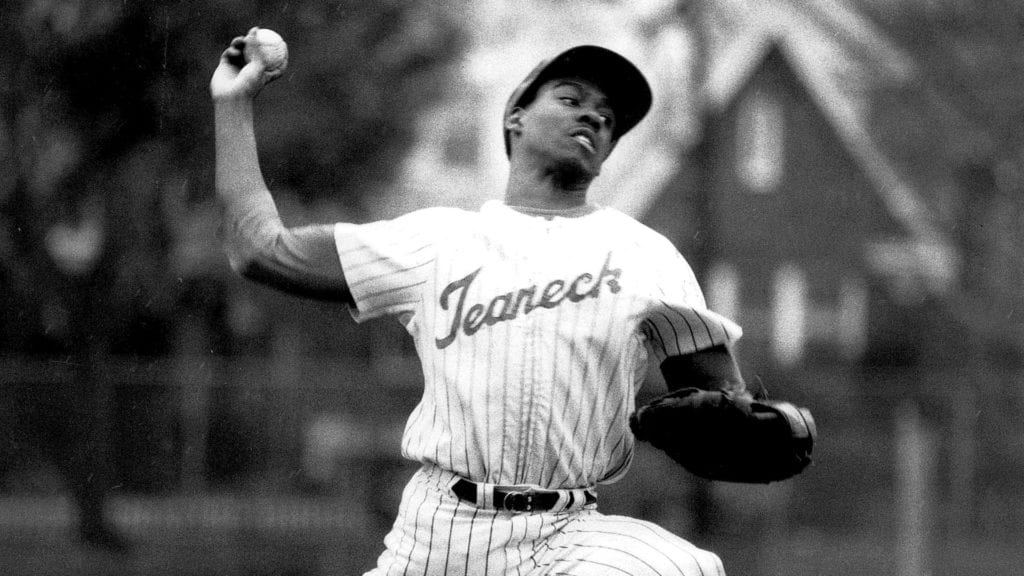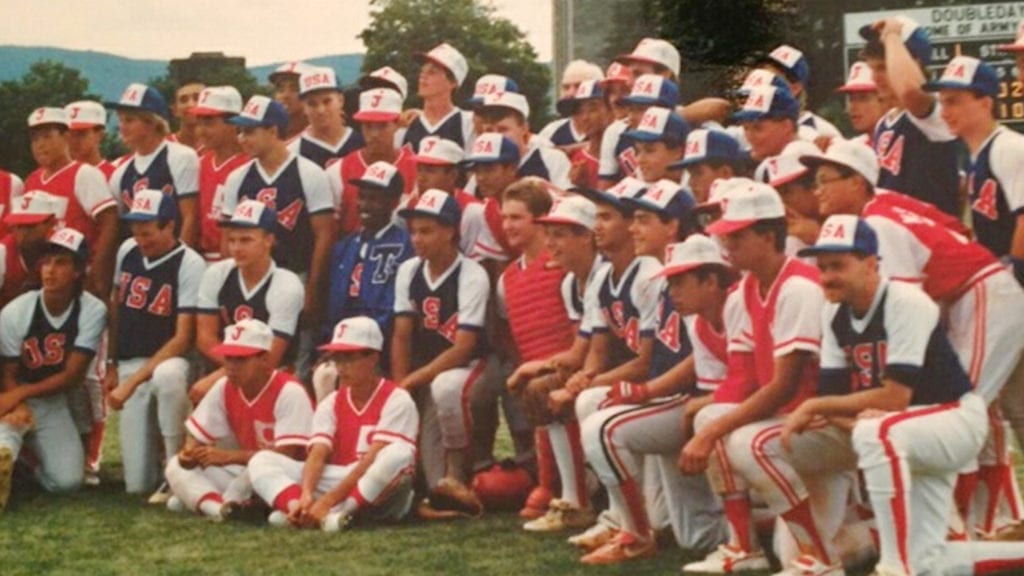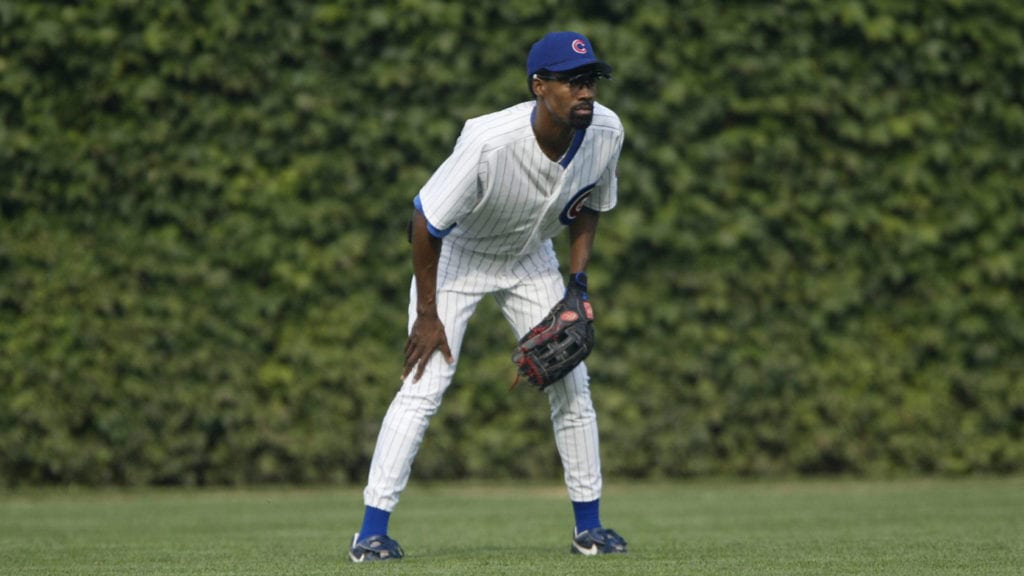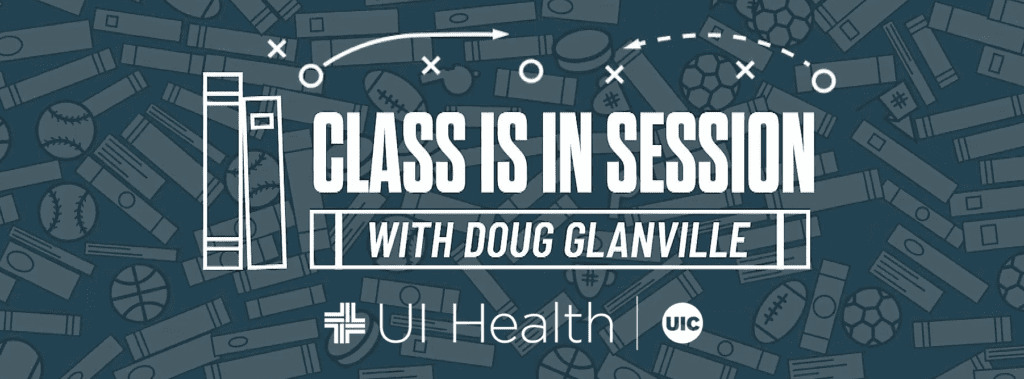The origin of ‘Class is in Session with Doug Glanville’ and the power of togetherness
“Class is in Session with Doug Glanville” is a show that embraces my life’s work of building bridges through sport to exchange ideas and embrace understanding.
While growing up in Teaneck, NJ, a town six miles from the George Washington Bridge that connected New Jersey to New York City, I lived in a community that was committed to inclusion after it voluntarily desegregated in the early 60s. It was more than a notion; it was a way of life. Baseball was my field of unity where the many diverse people who settled in Teaneck became teammates on and off the field.
To sustain such a place, we needed a commitment that lived beyond words. We needed to engage with people of different perspectives with the end goal of learning, coming together and most importantly, thriving together. We all had spaces where it was easier to accomplish this goal than others, and for me, that space was on the baseball field. At a young age, I could not always verbalize how sports celebrated team in a way that could transcend the boxes we check. Yet, it was equally important in sports to uphold the rules fairly, no matter who was playing the game. Those were two of my early lessons about fairness and equity.
One day, our high school team was playing a town outside of our division. During the game, the other team pulled the hidden ball trick, and the umpire ignored the rule that the pitcher must be on the grass. They called my teammate out at second, and we ended up losing by one run. While he expressed his frustration with the call (as did our manager), a fan in the stands started saying nasty things to our team, prompting our now emotional teammate to yell at her in her lawn chair as his patience wore thin. After the game, we had to walk through the rising cement football stands to get to our team bus at the top. A hostile white man with a small group of others waited at the top of the steps and in front of our bus. I recall him in particular because of the racist language he was hurling at us. When our captain got to the top of the stairs, the man kicked our captain in the chest. A grown man in professional attire attacked and assaulted a high school baseball player, and still, our captain tried to keep the team together. I was a sophomore.

After the game, we had to walk through the rising cement football stands to get to our team bus at the top. A hostile white man with a small group of others waited at the top of the steps and in front of our bus.
Our initial reaction was to defend ourselves, especially since it was unclear we would even make it to the bus safely, but our coach wisely (and as he said later, by a miracle) was able to get us on the bus. We were fairly outnumbered, and there was no telling what kind of reinforcements would have arrived. We also didn’t have confidence that the local police would have seen it the way we experienced it, so we left.
What stuck with me that day was not so much the open and utter racism on display at a youth sporting event, but that my teammates, a kaleidoscope of colors, banded together, did not see Black vs. White, but saw all of us united against hate and ignorance of any kind.
Many of those same players continued on to be my summer league teammates, a team managed by Eugene O’Reilly, volunteer detective from the Teaneck Police Department. His son, my teammate, is currently the chief of police in Teaneck in 2021. Others, like Bobby Mehnert, served for decades as officers. It turns out that my journey in sports also brought people together by profession, including law enforcement and the community it served. And that proximity and in this case, that intimacy, stayed with me for life. When my father passed away in 2002, members of that same police force, my former teammates, paid their respects in full uniform, complete with a police escort to the burial site, in part for his service in helping officers as a physician.

It turns out that my journey in sports also brought people together by profession, including law enforcement and the community it served.
Our town was not immune to the impact of racism given it lives in the landscape of America’s struggle, but it did accomplish something substantial. The town was a setting that forged genuinely integrated experiences and allowed us to engage from a position of strength. We believed and had seen firsthand the power of what we had in common as people. I had so many counterexamples to the perpetuated stereotypes that it made me understand that we all need to go deeper to fully understand each other and work hard to leave the stereotypes behind.
This all shaped how I embraced my entire baseball life. On one level, baseball was a passion and a profession, but it also served as a social compass, an incredible tool to reach out and challenge biases, while addressing our inequities and the ways in which humanity falls short. I never stuck to sports because I saw it as part of the solution that made us better as a team. It always seemed like a wasted opportunity to only compile stats and count wins. The lessons were too rich and the opportunities too important.

I never stuck to sports because I saw it as part of the solution that made us better as a team.
Since I retired from pro ball and after becoming a husband and a father of four, I have had to reconsider what sports mean to me. I have been fortunate to work in media so that I can still engage my favorite sport of baseball, for sure, but I also see the power within all sports. After some difficult incidents colored by race over the past decade in particular, I took the lessons of those experiences and started writing about them. One such occurrence was when an officer from the next town questioned me in my driveway asking if I was shoveling to make money. Another was when a cab driver at LAX refused to take me to the hotel and kept telling me to take the bus. Both times, I pushed for solutions, not just answers. I sought enduring changes that would educate us all, but also make the world more open, more welcoming, and a hair closer to relying less on our prejudices. One collaborative involvement led to a law in Connecticut; the other changed policy at LAX. It was methodical and slow, but in the end, I found that embracing many different people in search of a solution was often more important than the outcome itself. It made us all invested in the future beyond that outcome.

After some difficult incidents colored by race over the past decade in particular, I took the lessons of those experiences and started writing about them.
This show is the dream that has come of these experiences. Yes, I used the word dream because it reflects the best of what I have gained from my life’s experiences in sport and how sport lives in larger society. How it challenges our society to think differently. Over the past five years, I have taught a number of courses around sport and society. Teaching has reinforced how important it is that we have forums for constructive engagement. Discussion not only based on likes, tweets, and ideological blindness, but in the spirit of the best of sport and its connection to society.
Marquee Sports Network has been a great partner in this show. “Class is in Session with Doug Glanville” is 30 minutes of being in a conversation, a conversation you might have after a great game. The people in that conversation love sports, want the world to be better; they are interesting, deep thinkers who are also a lot of fun. It is an honor to be their moderator, to help guide the discussion, but also to be part of it, like a good teammate. Our guests teach, but also are learning and sharing. I want the show to be a place to listen, but also to inspire with heartfelt honesty, with the hope that our audience is patient and open to new ideas.
I also love to write, and it has been so wonderful to write much of the show while partnering with a team who creates magic by setting the words to the visuals which set the tone of the show.
In the end, I want this show to have a conscience, and to be our conscience, about building a culture that celebrates our shared humanity, using sports as our blueprint. Even when we are discussing the challenging and sometimes painful issues that we face, I know that we are better when we face them together.
In my years of being a professor, one lesson has been clear; a professor learns more than a professor teaches.
Let sports be our teacher.
Hope to see you in class.
Class is in Session with Doug Glanville presented by UI Health is a half-hour panel show exploring the intersection between sports and larger society. Each month, Glanville sits down with a distinguished panel of guests, analyzing and providing solutions to the most challenging issues in the world of sports. For past episodes, visit the Marquee Sports Network app.



